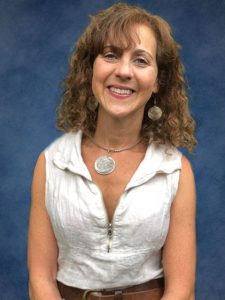How to choose what age group with which to work

Juliette Bermingham, Psy.D, assistant clinical director for the Salem Psychological Associates in Salem, NH
For a psychologist just starting out or an established clinician looking to expand her practice or switch focus, the prospect of working with a different age group can be daunting. But, of course, there are plenty of others who have taken the path ahead of you and advice to follow.
The first step is to really think about what age group(s) you have a passion for working with on a day-to-day basis. From young children to adolescents, adults and seniors, there are benefits to working with each group and no one can say which is objectively “better.” It really comes down to where you are drawn personally.
For some, those interests change over time. Juliette Bermingham, Psy.D, assistant clinical director for the Salem Psychological Associates in Salem, NH, found that her work changed as her circumstances changed, from working with children and families when her kids were young, to working with couples and with the LGBTQ population and more recently, with seniors.
“I have been in private practice for about 14 years,” she said, “and my life circumstances have often affected my interest in working with different populations. Seniors are part of the newest population I have found myself working with. I see myself on the other side now that I am over 50 and I have found myself shifting in focus, thinking about what is my life going to look like at 60, 70, or 80.”
An important second step would be to do your research before embarking on working with a new clientele. David Scherer, Ph.D, professor emeritus at the University of Massachusetts Amherst, has spent his career researching and teaching about adolescent psychology along with working with teens in a clinical practice.
Getting informed on the unique needs and qualities of adolescents is key, he said.
“People may be good at working with adults,” he said, “and when a teen comes along, they think they can use the same treatment. But it doesn’t work like that.”
It’s a field that tends to be more open, perhaps because therapists prefer the relative simplicity of working with younger or older clients.
“I always told students that it is an exciting group because it involves all the different facets of psychology,” he said. “You have brain development, puberty, changes in identity, peer and social interactions, etc.”
Teens are not an easy population with which to work. In most cases, they are not in therapy by their own volition, having been mandated by courts or schools or their parents to attend. That can be the first hurdle to get over before even starting actual therapy.
“It is rare that a teen shows up saying they want to do therapy,” Scherer said. “It can help to offer as much choice in the treatment plan as you can, when to meet or where and for how long. It is not always practical but that can help to mitigate the feelings of being coerced.”
Next, look for advice and guidance from others in the field. One-on-one feedback can be invaluable.
“Seek out consultation and supervision,” said Bermingham. “Conferences and online research don’t really offer the ability to consult on a specific case and if you are struggling, you need to be able to go to someone to get some help.”
Finally, be open to the unexpected – good plans go wrong and opportunities also come up – be open to exploring working with clients you may not have planned to work with, or to backing away from an area that does not seem to be a good fit for you and for your practice for whatever reason.
“I wasn’t sure about working with older adults,” said Bermingham, “But, it has been an incredibly enjoyable experience. I love the positivity and have been very encouraged by the types of universal issues and concerns that arise.”
Catherine Robertson Souter is a freelance writer and social media agent based in New Hampshire. A contributor to New England Psychologist since its inception, she previously wrote for Massachusetts Psychologist among other media outlets.
